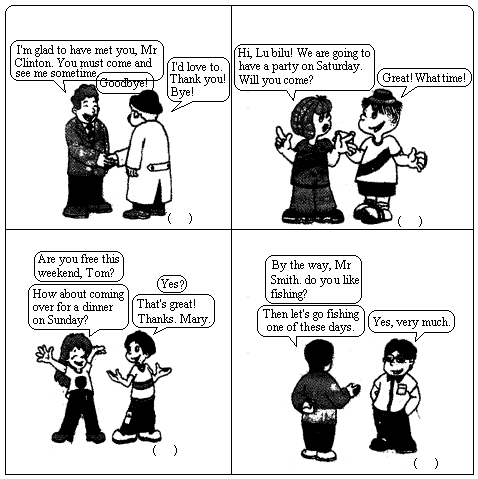题目内容
阅读短文,然后判断:Jane always goes to school early. She likes to talk with her friends before class. After school she does not go home early. She is always late. Jane stops to look at the animals in the pet(宠物) shop. She likes to see the dogs. One dog is white. She watches the dog in the window of the shop. She watches for a long time, and she comes home late.
One day Father and Mother asked why she was late, and she told them about the dog in the shop.
Jane was not late the next day. She stopped to look in the window of the shop. She didn't see the dog, and she was not happy, but she was also happy. That day was her birthday.
Mother showed Jane a big birthday cake and father gave her a birthday surprise. He gave her the white dog from the shop. Jane was very happy. The next day Jane didn't come home late. She ran home early to play with the dog.
判断下列句子是否符合短文内容,符合的用“T”表示,不符合的用“F”表示。
1. Jane has to go to school very early because her school is far from her home.
( )
2. Jane comes home late because she likes to talk with her friends.
( )
3. Jane was happy when she didn't see the white dog in the window of the shop the next day.
( )
4. Jane liked cats very much.
( )
5. His father's birthday present was the white dog.
( )

